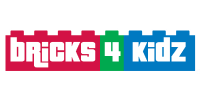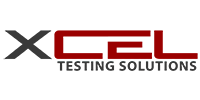Multiverse Media Group
Media & Marketing Solutions for Business Growth
Main Content
You’re in great company. We work with amazing brands big and small.










Marketing Agency Services
Content Marketing, Review Management, Search Engine Optimization (SEO), Online Advertising, Branding and Design
Stop trying to handle everything in-house. We work as the technical extension of your marketing team. If you don't have a marketing team, you do now. We are known for being transparent, reliable and honest. We are strategic and accountable. We put your investment to work by creating strategic digital assets that produce results. The truth is there are thousands of agencies all with great people. What makes us amazing is our deliverable to investment ratio, our inherent hustle and, that we are as loyal as dogs.


Website Development Services
Small Business Websites, Multisites, Franchise Websites, Non-Profit Websites, and eCommerce Sites. Plus Fully Managed Hosting & Support.
We structure websites like SEOs would (because we are). From custom WordPress Multisites for multi-location franchises to blazing-fast websites for small businesses with integrated heatmaps, landing pages, and a/b tested lead gen funnels. You won't find this depth of understanding at most website design companies. We don't flip websites out the door like in-and-out flips double-doubles. We build strategic digital assets. We create your brand guide, company logo, graphics, sales copy, and website videos - all to help you get that strategic competitive advantage. We host sites of all sizes in shared or dedicated servers, maintain sites, and often work on them for SEO or new features year over year. We're here for you if you need a website redesign and don't want to stress about quality or any of those technical details.
Video Production Services
Corporate Videos, Training Videos, Testimonial Videos, Website Videos, and Commercial Videos
We started as a video production company and snowballed into a full-service production studio that offered equipment rentals and even video equipment sales. In those days, we chased every dollar. But as we've grown, we started throwing some smaller fish back to focus on the bigger picture. Today's video services include corporate videos, training videos, testimonial videos, website videos, and video commercials. Beyond that, we still offer scripting services, post-production services, and video marketing services for things like YouTube SEO and online video advertising. Video production isn't some add-on service where we rush out to hire someone with a camera and put a page on our agency website; video production is in our blood. We've worked with big and small. Video is for everyone.

The Secret To Great Reviews is Doing Great Work.
"I can’t thank Multiverse enough for the thoughtful approach, professionalism, and amazing quality of work that they were able to deliver for us. I look forward to working with you guys again soon!"
Zulaika Jumaralli, Marketing Communications Specialist —GE Capital
Read More TestimonialsStart Here
Footer
Who We Are
We are straight-shooting creatives who believe in our clients. We produce strategic digital assets and utilize the latest technology to bridge the gap between our clients and their ideal customers.
We create connection.
Recent Posts
- How to choose the right live video production company
- These 3 Tips Increase Website Conversion Rates
- Web Design Pricing for Franchises
- 10 Quality Production Tips for Webcam Recordings by Multiverse Media Group.
- Instagram Marketing: A Guide to Growing Your Instagram Account
- Blogging for SEO: A Guide to Organic Traffic [2022]
We Are Located In
Jacksonville, FL.
San Deigo, CA.
Baltimore, MD.
Atlanta, GA.
Philadelphia, PA.